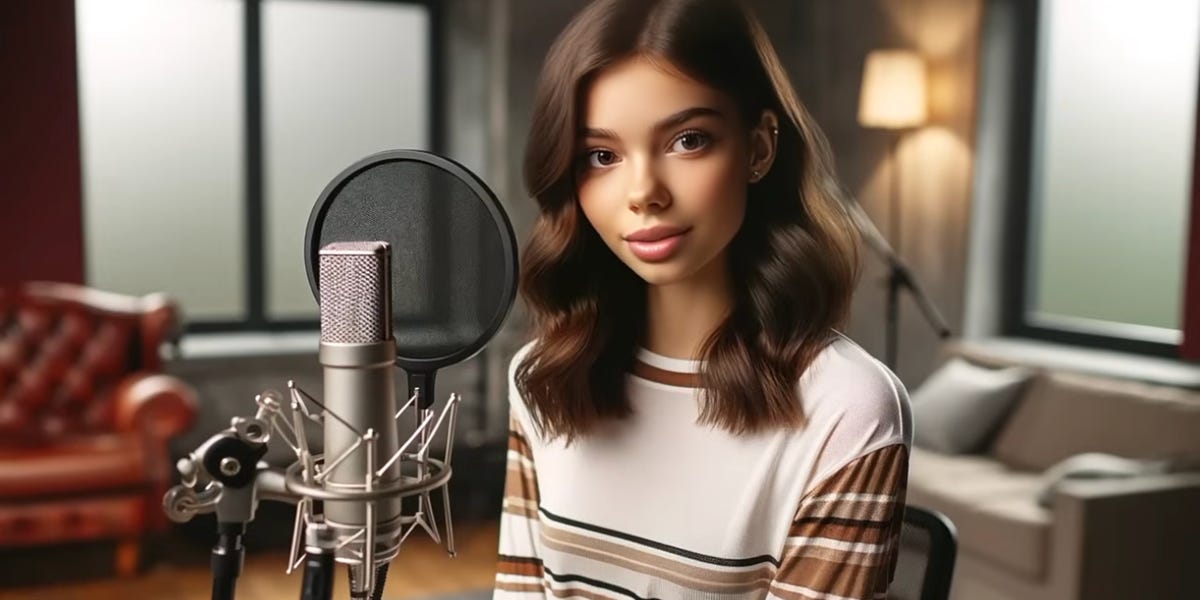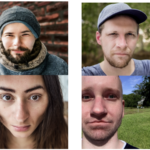She is flawless, almost excessively so. Her cheeks boast a smooth texture, her movements exhibit remarkable fluidity, and her voice maintains a consistent pitch without faltering. Allow me to introduce Anna Indiana, the trailblazing musician whose entire persona—from her physical appearance and vocal delivery to musical components like chord progressions, key, tempo, and lyrics—has been ascribed to artificial intelligence, devoid of any human intervention.
In her debut single, “Betrayed by this Town,” Indiana sings about heartbreak, aimlessly wandering through deserted streets, and articulating a desire to dismantle a community brimming with “shattered hopes and silent screams.” The accompanying music video portrays her in a laid-back setting, seated in front of a microphone and pop filter, reminiscent of a B-tier ASMR content creator.
On Indiana’s official platform, the undisclosed creators revealed the array of tools employed in her creation: utilizing open-source Python libraries for crafting chord progressions, leveraging ChatGPT 4 for lyric generation, and implementing a system to synchronize lyrics with a melody and a synthetic voice sourced from Synthesizer V, subsequently converted into a copyright-free voice using the “cloning” software Musicfy. Despite inquiries from Business Insider, the creators have chosen to remain silent.
The video amassed an impressive 21 million views on the platform but also faced strong criticism. Renowned YouTube music critic Anthony Fantano bluntly described the song as subpar, while comedian Kathy Griffin ominously remarked, “We’re doomed.” A multitude of viewers echoed similar sentiments, labeling the video as the epitome of musical disappointment. Musician James Blake, in a seemingly sarcastic tone, expressed his anticipation for the future, confessing that the video brought him to tears.
With the progression of technology, there has been a rise in virtual musicians partially crafted using AI. This trend originated with Hatsune Miku in 2007, evolving into a quasi-global pop sensation. Subsequent artists like Miquela emerged, collaborating with real-life musicians such as Teyana Taylor and Baauer, producing music indistinguishable from traditional pop tracks. FN Meka followed suit, a cyborg rapper who inked a deal with Capitol Records but faced backlash for alleged racial stereotyping, leading to contract termination.
The intense reaction to Indiana stems from her distinction as the alleged first artist entirely conceived by AI, along with the perceived lack of creativity in her music. Her very name serves as a disconcerting acronym advocating for a complete AI-driven transformation: “Artificial Neural Networks Accelerate Innovative New Developments, Igniting A New Age.”
Despite the polarized reception, it is plausible that a devoted fanbase may emerge, akin to the following surrounding Miquela and other virtual influencers. Indiana’s music, while unremarkable, does not approach being unbearable. Her vocals exude an uncanny smoothness, and her lyrics delve into clichéd emo themes. Nonetheless, this aligns with the prevailing trend of “streambait pop,” tailored for passive consumption in today’s music landscape.
While critics posit that AI does not pose a threat to human creativity, the crux of the debate may lie elsewhere. In an era where 24-hour lo-fi beat streams draw thousands of concurrent listeners, and platforms like Spotify rely on algorithmic recommendations for extended playbacks, Indiana could seamlessly integrate into the mainstream music consumption realm. The creators of Indiana expressed their intention on Twitter to “compose and perform new original music continuously on a livestream without any human involvement.”
While fully AI-generated music may not overshadow genuine artistic innovation, it could divert attention from more challenging and innovative musical pursuits. This phenomenon, termed “streambait creep,” illustrates how audiences, accustomed to generic pop tunes, may grow indifferent to the authenticity of music, blurring the line between real and robotic compositions. If the human touch is completely eliminated, and the process of generating artists like Indiana becomes simplified, a new genre of easy-listening AI-generated music could potentially dominate the music landscape.






